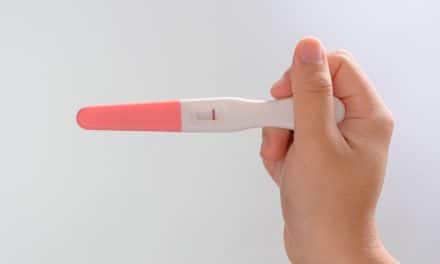Contrary to what is believed, being fit or having a good physical appearance does not necessarily mean being healthy or being more fertile. But normally people who play sports and take care of their physical appearance also tend to take care of their health, and a healthy person, in principle, does not have to suffer from reproductive problems. Therefore, one thing is associated with the other.
However, sport in itself does not enhance fertility, and practising it intensively may even be counterproductive. So, being June the month of fertility, Dr María Fernanda Peraza, andrologist and specialist in sexual health of our Men’s Health Unit clarify in this post some points on this subject.
Let’s start with the million-dollar question:
What are the benefits of practising exercise on fertility? Practising exercise on a regular basis has beneficial effects at the cardiovascular, metabolic, endocrine and neurological levels: it promotes circulation, protects the heart, keeps cholesterol at bay, increases physical endurance, strengthens bones and muscles and helps control body weight and blood sugar levels.
It also reduces stress and it improves the quality of sleep and mood. All this translates into an improvement of the physical state that favours the good functioning of our organism and increases our personal well-being, which, indirectly, favours the reproductive activity. But that does not mean that a person who exercises regularly is much more fertile than another. The key to fertility is the age and the good health of the reproductive system.
But being overweight negatively affects fertility
Yes, obesity can cause ovulation problems and irregularities in the menstrual period. It has also been shown that it reduces the response to infertility treatments and increases the risk of miscarriages. Therefore, women who have this problem, or who tend to gain weight, are advised to introduce changes in their lifestyle. In men, obesity is also a risk factor, and not only to develop diabetes or hypertension, but also for erectile dysfunction, as it can cause alterations or cause an androgen hormone imbalance that can affect erectile function.
What is considered a correct weight?
It varies according to the constitution, height and physical activity that each person performs. To find out if our weight is adequate, we must calculate the body mass index (BMI), using the formula: weight (kg) / height (m2). A BMI between 18.5 and 24.9 is considered correct. Below 18.5 is insufficient, and above 24.9 is considered overweight.
Doing sports intensively can delay the appearance of the period or cause menstrual irregularities
Yes, it’s true. Because when our body must make an intensive effort, which requires greater energy expenditure, there is an alteration at the level of the hypothalamus (which regulates the functioning of the ovaries), that eliminates the process of ovulation, which results into an amenorrhoea (lack of menstruation). That is why it is common for women who practice rhythmic gymnastics since childhood, or other sports at a professional level that require great effort and intensive training, to take longer to reach puberty or to have menstrual irregularities.
So, is it incompatible to practise sports if we want to be mothers or if we are undergoing an IVF treatment?
It is not incompatible, but you have to know how to choose the type of physical activity, and adjust the time and intensity, and accompany it with a balanced diet that meets the needs of each person. For those who are not athletes, swimming or doing some aerobic activities such as walking or dancing and moderate gymnastics are highly recommended, both before starting an assisted reproduction treatment or getting pregnant or during pregnancy. Nevertheless, practising pilates and yoga is not advised right after the embryo transfer because they can exert intra-abdominal pressure.
And what about men? Is it true that cycling or marathon can affect the quality of male sperm?
Yes, it is. The training in high competition sports produces free radicals that in the long term deteriorate the seminal quality, although the exposure to these events must be for quite a long time for this effect to occur. An isolated episode (such as a marathon) is not a problem, but presumably if you run a 42 km marathon or make a bicycle crossing, you need training and this fatigue, obviously, if not supervised and compensated with a good nutrition and recovery at the cellular level, can have consequences.
As a conclusion, it is important to clarify that, unless there is a contraindication, playing sports is always better than not doing it, although you have to know how to adapt it to each case and personal circumstances. So, if you’re trying to get pregnant, it’s better not to get obsessed with going to the gym every day. If you are in good health, you eat in a balanced way and you have a correct weight, dedicating between 30 and 45 minutes to do some type of exercise four or five times a week is enough.
Do you have any doubt? Leave us a comment!














